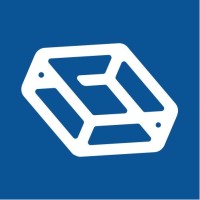

Microsoft Fabric Data Engineer (UT Local Only - USC Only)
⭐ - Featured Role | Apply direct with Data Freelance Hub
This role is for a Microsoft Fabric Data Engineer, requiring a Bachelor's degree and 3+ years of Azure-focused data engineering experience. Contract length is unspecified, with a pay rate of "unknown." Local candidates (UT) and USC only. Key skills include Microsoft Fabric, Azure Data Factory, SQL, and data integration.
🌎 - Country
United States
💱 - Currency
$ USD
-
💰 - Day rate
600
-
🗓️ - Date discovered
September 23, 2025
🕒 - Project duration
Unknown
-
🏝️ - Location type
Unknown
-
📄 - Contract type
Unknown
-
🔒 - Security clearance
Unknown
-
📍 - Location detailed
Salt Lake City, UT
-
🧠 - Skills detailed
#Data Governance #Azure SQL #Computer Science #Data Lake #Security #Documentation #GitHub #BI (Business Intelligence) #SQL (Structured Query Language) #Data Pipeline #PySpark #Azure #Dataflow #Compliance #Spark (Apache Spark) #"ETL (Extract #Transform #Load)" #Data Engineering #Azure DevOps #Delta Lake #Scala #Azure Synapse Analytics #Data Integration #ADF (Azure Data Factory) #Python #Synapse #DevOps #Data Ingestion #Cloud #Datasets #Storage #Azure Data Factory #Microsoft Power BI #Data Transformations
Role description
Key Responsibilities:
• Design, implement, and manage end-to-end data pipelines using Microsoft Fabric and Azure Data Factory.
• Develop data models and analytical datasets using Microsoft Fabric's OneLake, Power BI, and Dataflows.
• Integrate and optimize data ingestion, transformation, and storage across Azure services (e.g., Synapse, Data Lake, SQL, Delta Lake).
• Collaborate with cross-functional teams to understand business requirements and translate them into technical solutions.
• Ensure best practices in data governance, security, compliance, and performance tuning.
• Monitor and troubleshoot data pipelines, ensuring reliability and scalability.
• Stay updated with Microsoft Fabric and Azure ecosystem advancements and propose improvements.
• Create and maintain documentation for data flows, architecture, and configuration settings.
Required Qualifications:
• Bachelor’s degree in Computer Science, Information Systems, or a related field.
• 3+ years of experience in data engineering or cloud engineering with focus on Azure.
• Hands-on experience with Microsoft Fabric, including Data Engineering, Data Factory, and Power BI within Fabric.
• Proficiency in Azure Synapse Analytics, Azure Data Lake, Delta Lake, and Azure SQL.
• Strong knowledge of SQL, T-SQL, Python or PySpark for data transformations.
• Experience with data integration, ETL/ELT pipelines, and data warehousing concepts.
• Familiarity with DevOps practices and tools like Azure DevOps or GitHub Actions.
• Excellent problem-solving and communication skills.
Key Responsibilities:
• Design, implement, and manage end-to-end data pipelines using Microsoft Fabric and Azure Data Factory.
• Develop data models and analytical datasets using Microsoft Fabric's OneLake, Power BI, and Dataflows.
• Integrate and optimize data ingestion, transformation, and storage across Azure services (e.g., Synapse, Data Lake, SQL, Delta Lake).
• Collaborate with cross-functional teams to understand business requirements and translate them into technical solutions.
• Ensure best practices in data governance, security, compliance, and performance tuning.
• Monitor and troubleshoot data pipelines, ensuring reliability and scalability.
• Stay updated with Microsoft Fabric and Azure ecosystem advancements and propose improvements.
• Create and maintain documentation for data flows, architecture, and configuration settings.
Required Qualifications:
• Bachelor’s degree in Computer Science, Information Systems, or a related field.
• 3+ years of experience in data engineering or cloud engineering with focus on Azure.
• Hands-on experience with Microsoft Fabric, including Data Engineering, Data Factory, and Power BI within Fabric.
• Proficiency in Azure Synapse Analytics, Azure Data Lake, Delta Lake, and Azure SQL.
• Strong knowledge of SQL, T-SQL, Python or PySpark for data transformations.
• Experience with data integration, ETL/ELT pipelines, and data warehousing concepts.
• Familiarity with DevOps practices and tools like Azure DevOps or GitHub Actions.
• Excellent problem-solving and communication skills.






